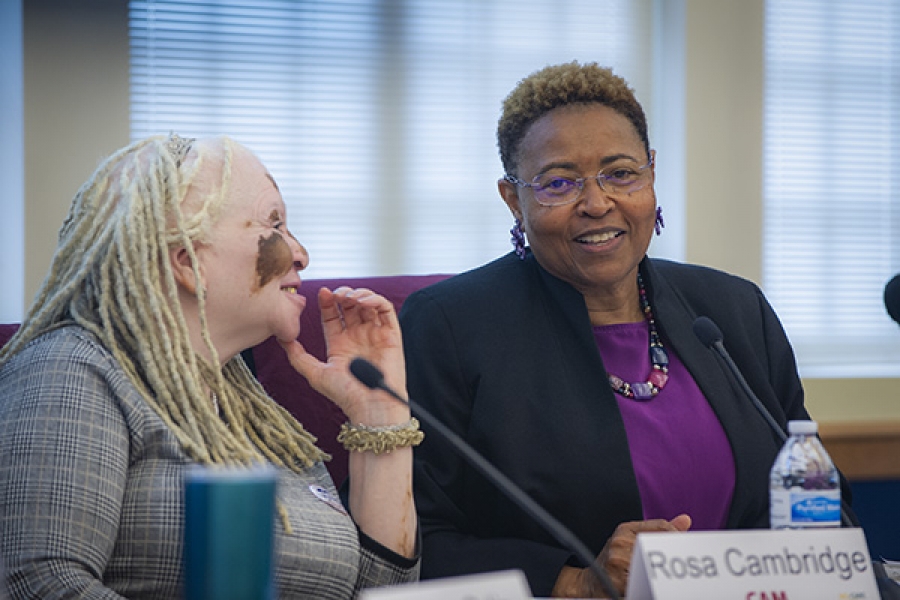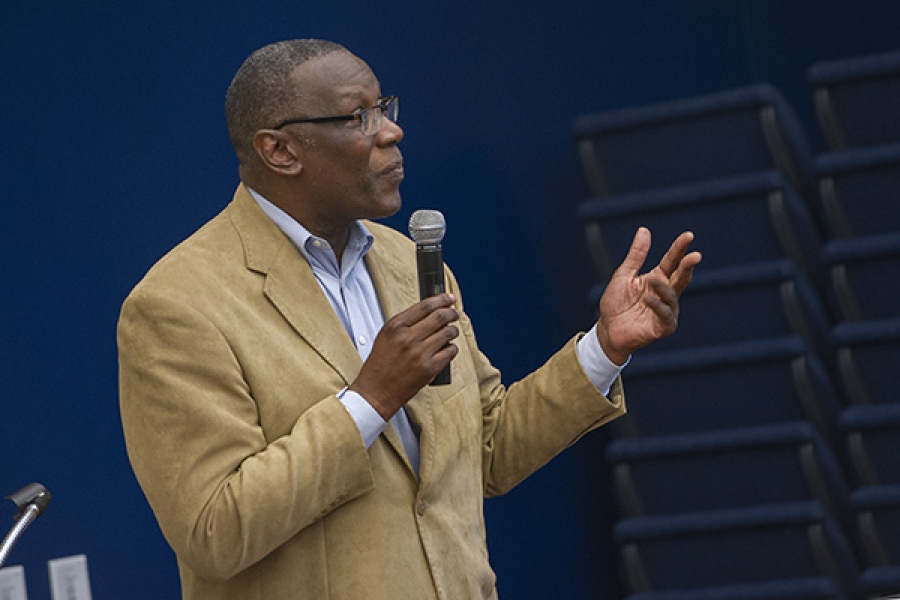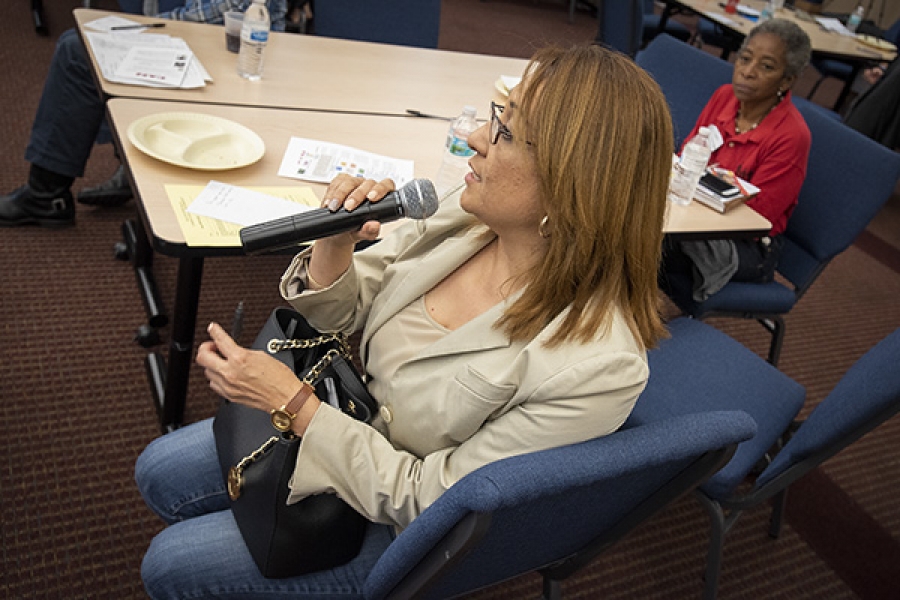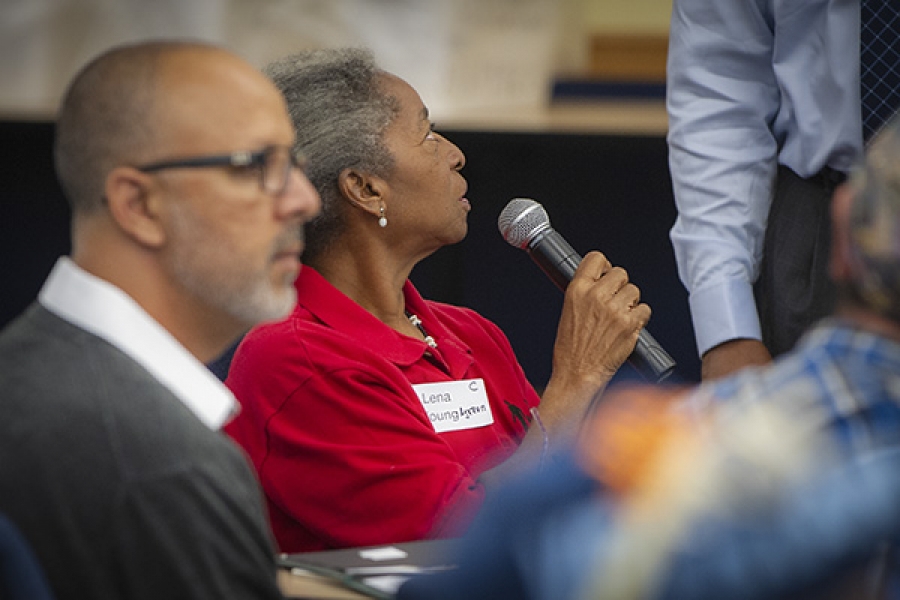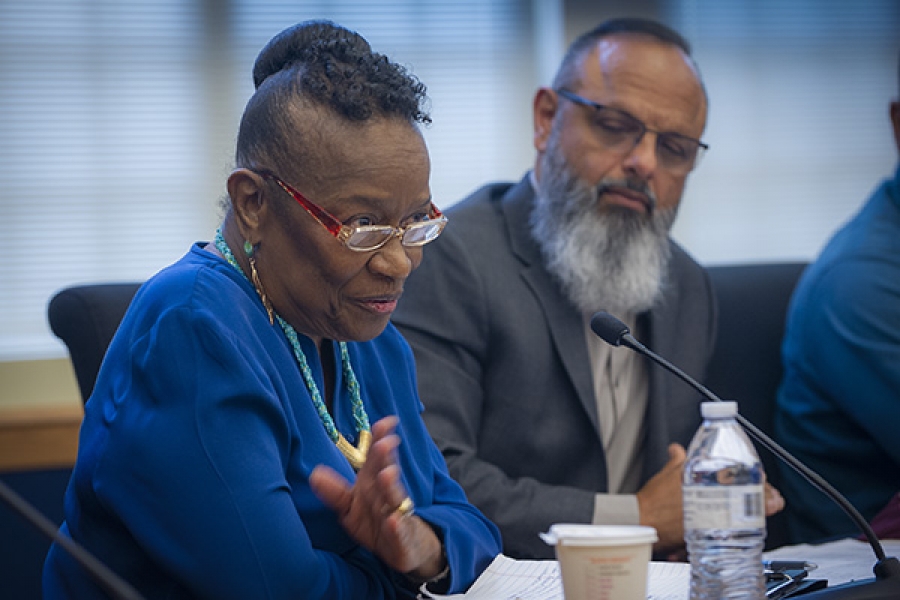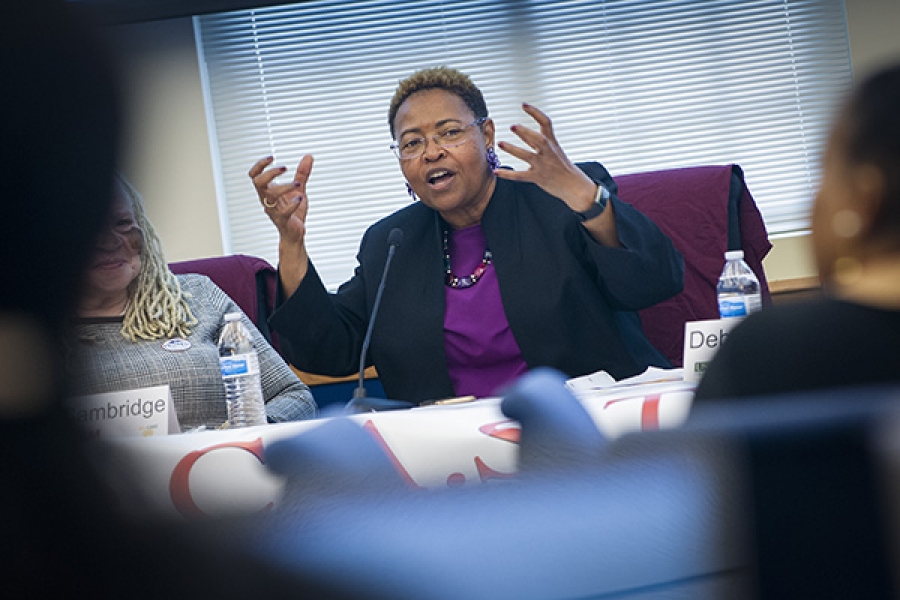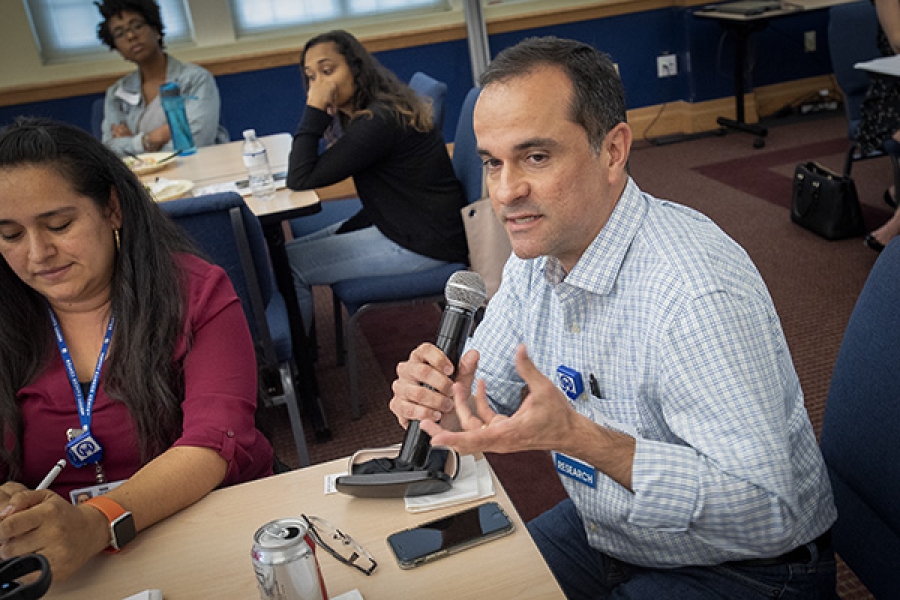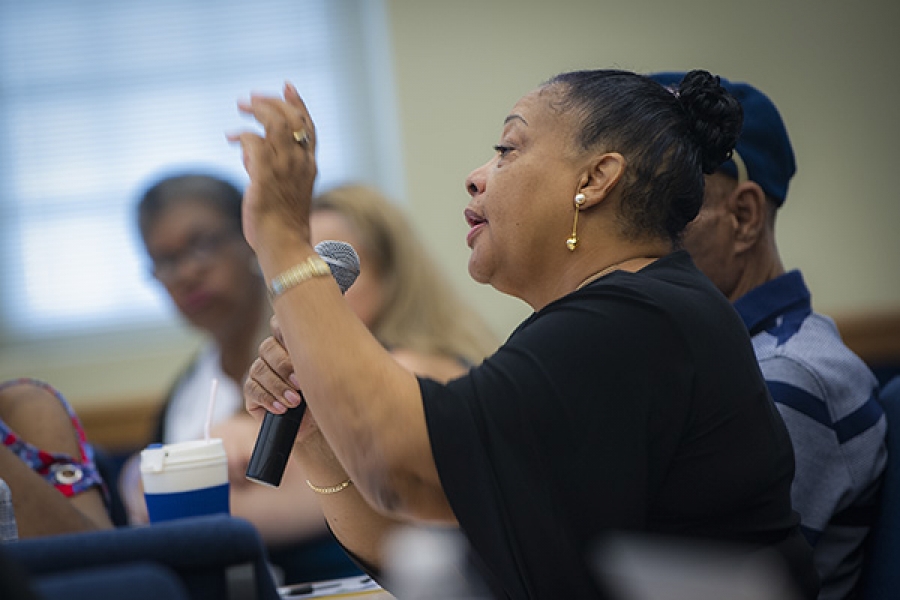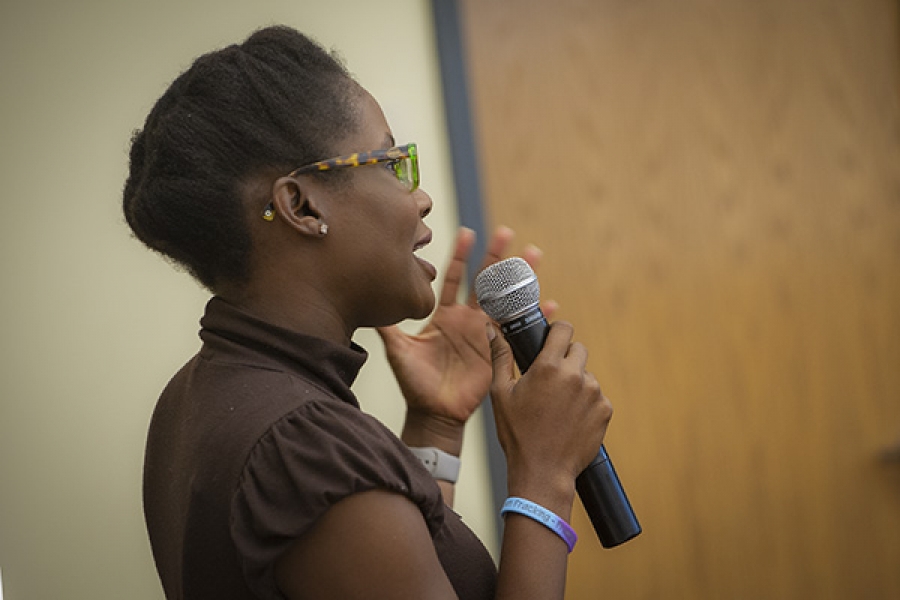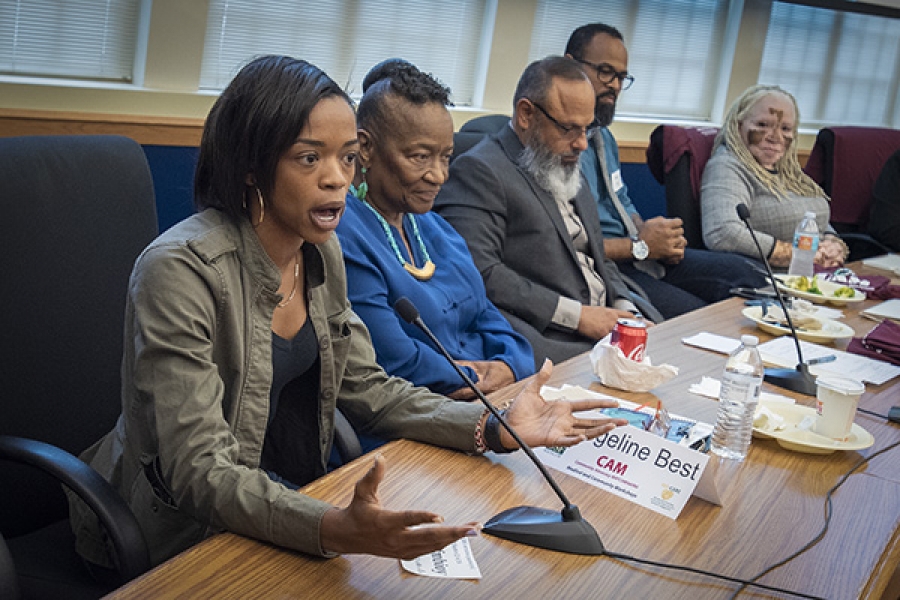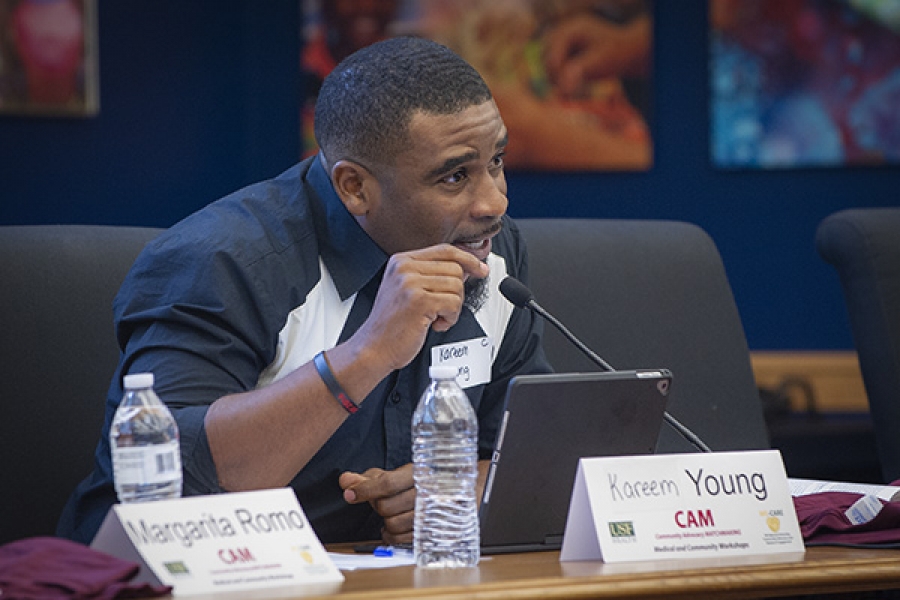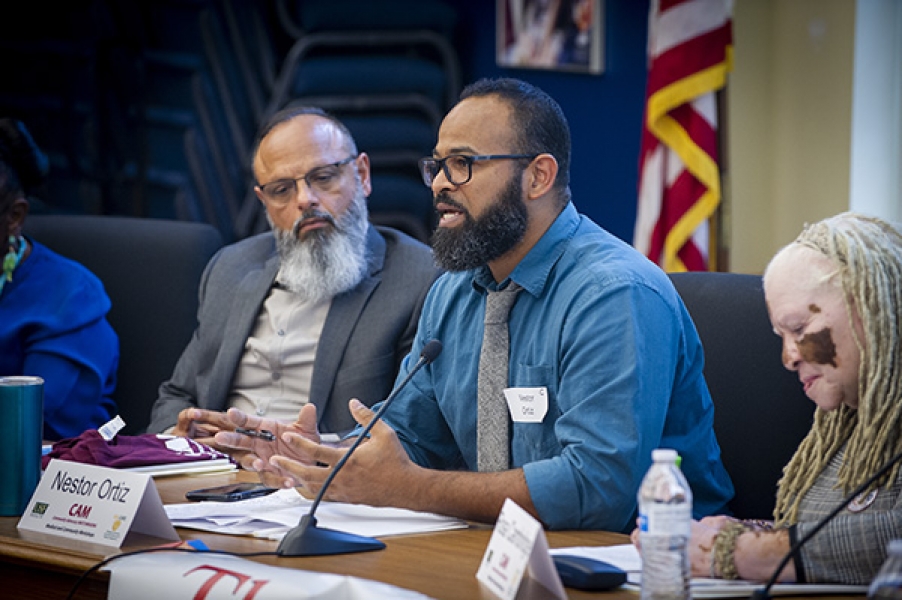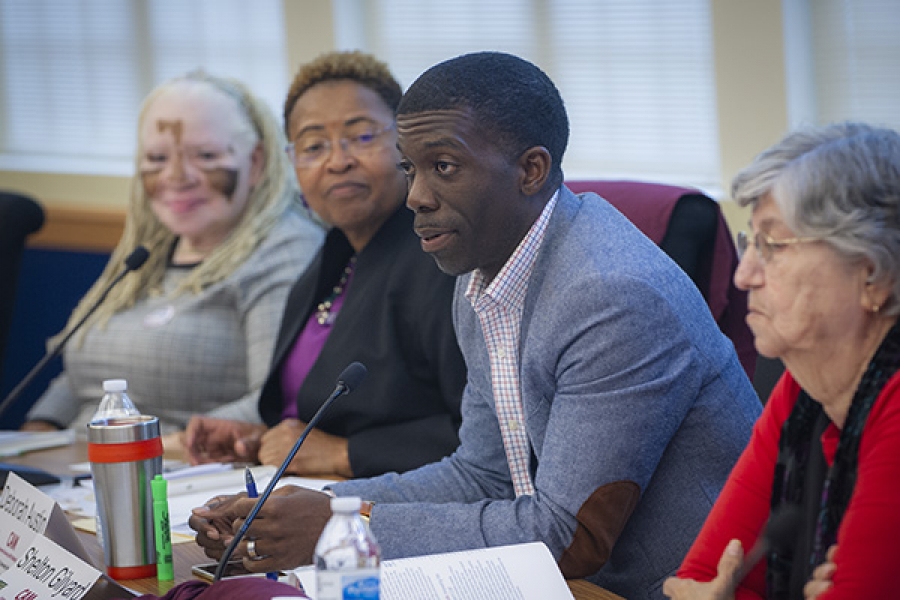USF researchers and clinicians heard valuable ideas for connecting with community groups and recruiting more minorities for clinical trials when they attended a community advocacy workshop earlier this month.
The program was an exercise offered by USF Health WE-CARE, an initiative that aims to improve health outcomes among minority populations by increasing minority enrollment and participation in research.
“We are going to cast a broad net to all groups to make sure we are making every attempt we can to capture people and introduce them to your research,” said Kevin Sneed, PharmD, dean of the USF Health College of Pharmacy, senior vice president of USF Health, and director of WE-CARE (Workgroup Enhancing Community Advocacy and Research Engagement).
“We have to build trust and co-create solutions. And we need all of you, the researchers and the community, to shorten the bridge that will get us together and make sure we’re communicating.”
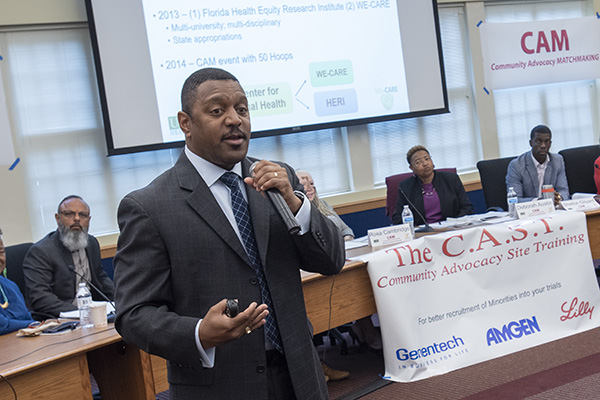
Dr. Kevin Sneed welcomes attendees at the WE-CARE, CAM workshop.
WE-CARE is helping build part of that bridge by connecting clinical researchers with community groups in hopes that more minorities will enroll in research. Clinical trials have historically lacked participation by people from minority populations, skewing research results to reflect presumed outcomes for predominately white and male populations. While African-Americans, Latinos, Asians and mixed sub-groups make up almost 40 percent of the U.S. population, current clinical trial demographics do not reflect that same diversity – non-whites account for less than 5 percent of clinical trial participants.
This narrow pool of DNA variants equates to limited samples for researchers to study as they develop new treatments, and thus limit information on the true effectiveness and on the risks of these treatments in minorities.
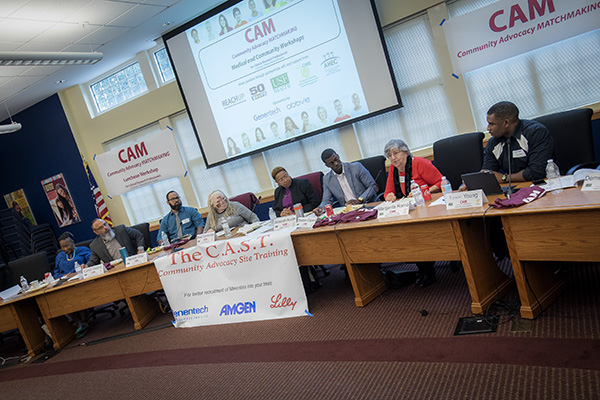
WE-CARE, CAM workshop panelists.
Part of the WE-CARE mission is to act as a resource for reviewing research studies and guiding researchers in potential ways of adjusting their effort to incorporate more minorities in their studies. Researchers can submit an abstract to WE-CARE, which goes to the group’s review board and, if approved, WE-CARE will help connect with Tampa Bay area community groups to help with recruitment.
“We can help you find people from underserved, underrepresented groups here in the Tampa Bay area,” Dr. Sneed said to the audience that included many researchers from USF Health and Moffitt Cancer Center.
Both Dr. Sneed and program panelists – made up of leaders from community advocacy groups and non-profit organizations from across the Tampa Bay area – urged researchers in the audience to remain cognizant of the patient’s perspective and to always consider them as individuals.
“The number one thing you can do is to buy into their humanity first,” Dr. Sneed said.
The Nov. 2 workshop was the second event hosted locally aiming to advance clinical research by increasing minority enrollment. About three years ago, a similar workshop was hosted, inspired by and in partnership with 50 Hoops, a national effort for outreach focused mostly on increasing minority male enrollment in clinical trials for prostate cancer. The recent workshop hosted by WE-CARE is based on the CAM model (Community Advocacy Matchmaking) designed by 50 Hoops.
Another concern voiced at the workshop was lack of follow through, and that if researchers want more minority enrollment they will have to engage far more frequently.
“Report back,” Dr. Sneed urged everyone researcher in the room.
“The number one complaint (I hear) is that researchers came into a community, collected, and never came back into the community to give an update. They never heard the result of anything.”
Photos by Eric Younghans, video by Torie Doll, story by Sarah Worth.
